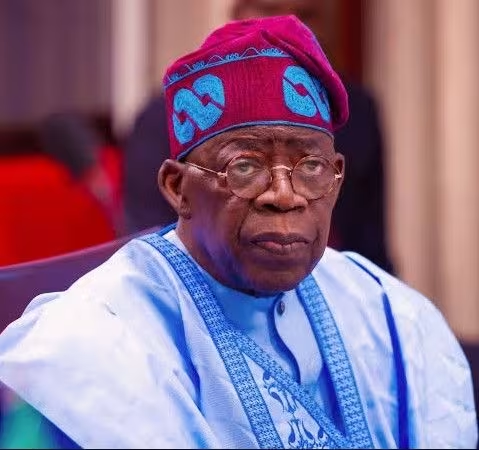The All Progressives Congress (APC) is expected to hold one of its most politically tense meetings since its founding tomorrow when its National Executive Committee (NEC) meets, particularly in light of the next general elections in 2027.
A number of controversial issues are anticipated to be faced by the NEC, such as widening internal divides, zoning disputes, the influx of defectors, governance issues, and an escalating leadership crisis. Reportedly supported by the president, the meeting could be crucial in determining the party’s course for the ensuing 18 months.
A vote of confidence in President Bola Tinubu is not expected to be discussed during the meeting in order to prevent igniting opposition or a recurrence of the Gombe State fiasco.
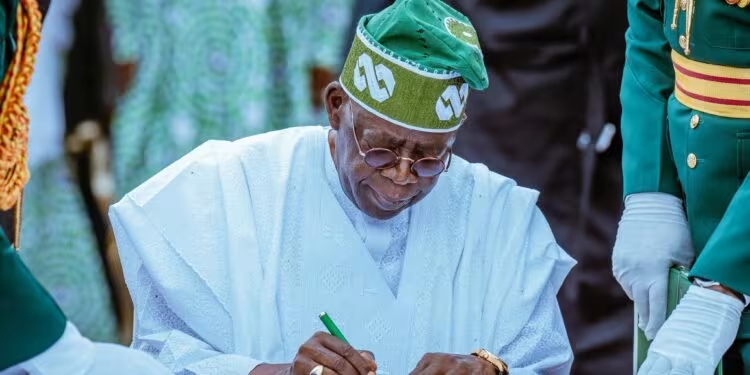
As opposition forces mobilise to prevent President Tinubu from retaining the presidency in 2027, the delicate topic of zoning for elective and appointive positions inside the party is likely to dominate discussions.
Rumours that Vice President Kashim Shettima would be ousted have been fuelled by continuous conjecture on a scheme to change the makeup of the 2027 presidential ticket.
After the most recent NEC meeting, which controversially shifted the party’s national chairman’s office from the North-Central, which had historically held the position, to the North-West, the effort to replace Shettima gathered impetus.
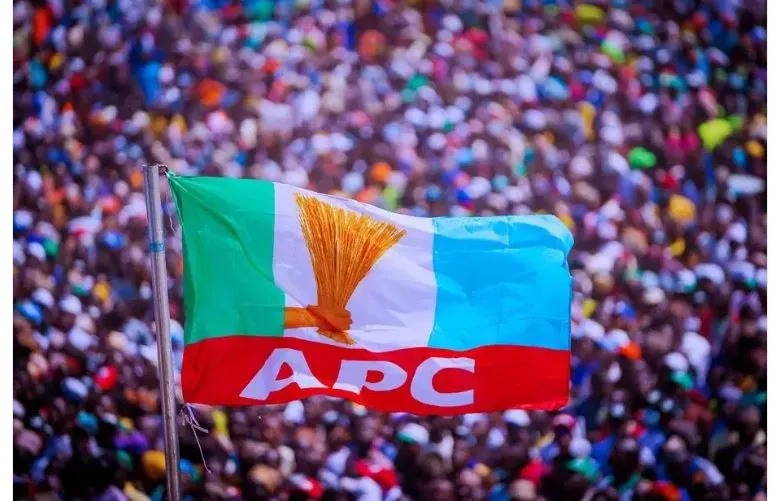
The NEC meeting was scheduled for tomorrow in what seems to be a hurried attempt to address that perceived unfairness. Ratifying the decisions made by standing committees and state congresses is another item on the agenda.
APC Party insiders told newsmen that although those topics are anticipated to take centre stage, President Tinubu, in his capacity as the party leader, may also bring forward other topics for debate when the council is formally called.
A possible cabinet overhaul, which would involve the removal of some ministers to make room for new political interests—especially in light of recent APC defections—is one of the subjects the president is allegedly keeping under wraps.
According to reports, President Tinubu is stepping up meetings with political heavyweights, especially in the North, in an attempt to thwart opposition alliances and preserve a solid foundation.
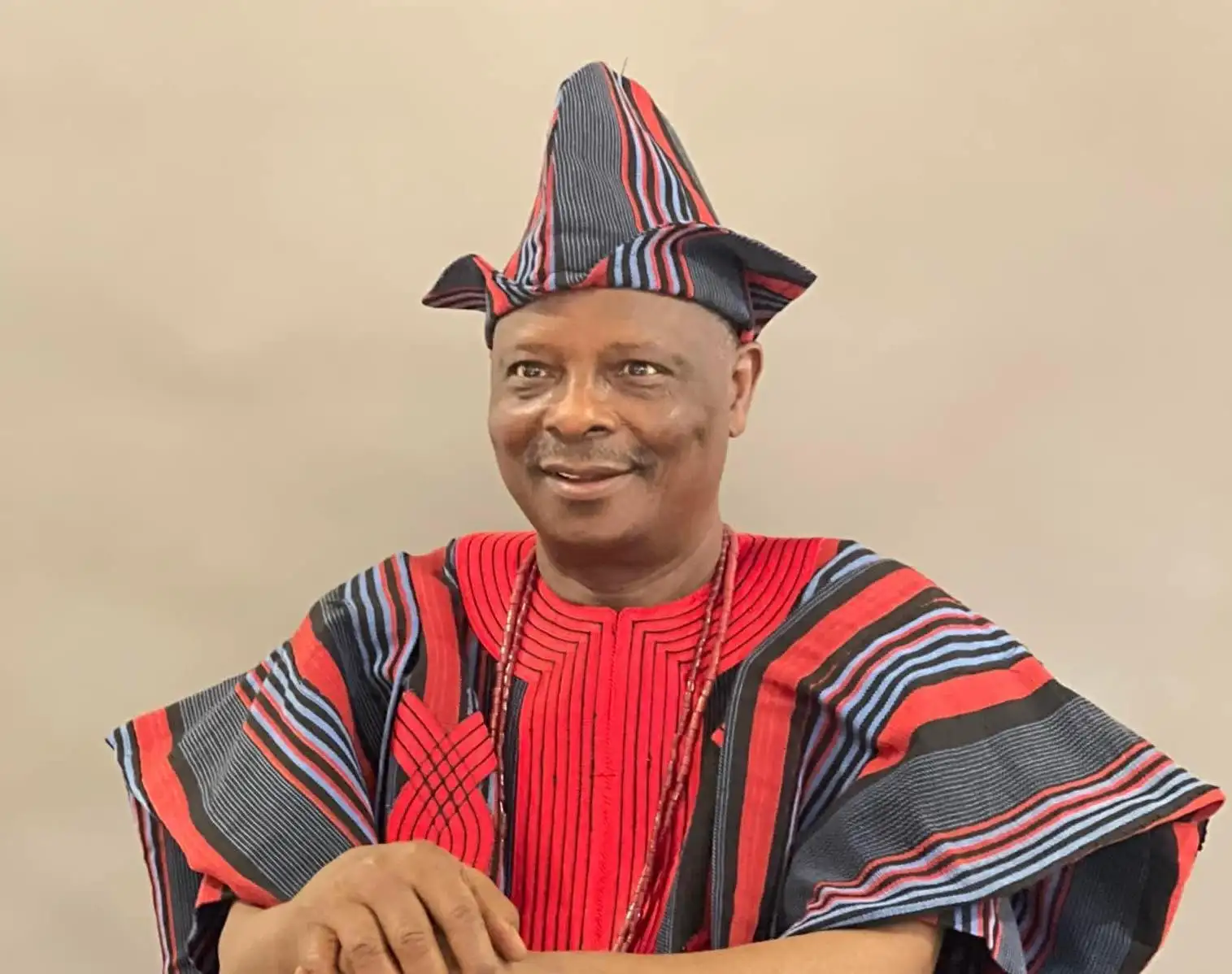
One such important meeting was a recent private meeting with Rabiu Musa Kwankwaso, the political leader of Kano, who is thought to be setting the groundwork for his potential return to the APC and his powerful Kwankwasiyya movement.
APC leaders have not yet made a public connection between Kwankwaso’s rumoured comeback and the abrupt resignation of Dr. Abdullahi Umar Ganduje, the party’s former national chairman, but there are indications that the two events are closely related.
APC Party insiders claim that there is still a lack of clarity around President Tinubu’s potential choice for the substantive national chairmanship ahead of tomorrow’s caucus and NEC meetings.
Many party leaders acknowledge that President Tinubu and the Progressive Governors Forum (PGF), chaired by Hope Uzodimma, have the last say on whether Kwankwaso will accept the position left vacant by Ganduje.
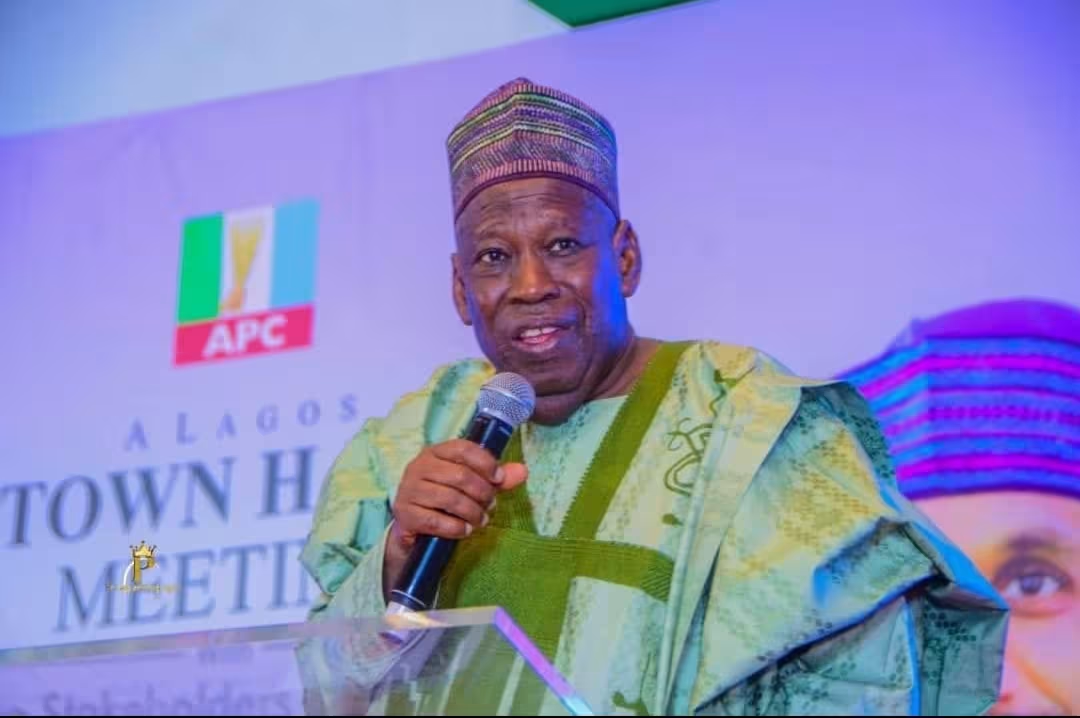
Recall that Last month, APC national chairman, Ganduje announced his resignation, stating that he needed to take a sabbatical from active politics to attend to personal health matters. The party’s organisation and readiness for future by-elections, particularly the gubernatorial elections in Anambra, Ekiti, and Osun states, may be impacted by the substantial void left by his departure.
The ratification of the congress and standing committee schedule and an update on the party’s e-registration procedure in all 36 states will be among the top priorities for Acting National Chairman Ali Bukar Dalori.
The argument over whether the post should stay in the North-West, or Ganduje’s zone, where Kwankwaso, a former Kano State governor and the New Nigerian Peoples Party’s (NNPP) 2023 presidential candidate, is being considered as a potential successor, is at the centre of the national chairmanship lobbying.
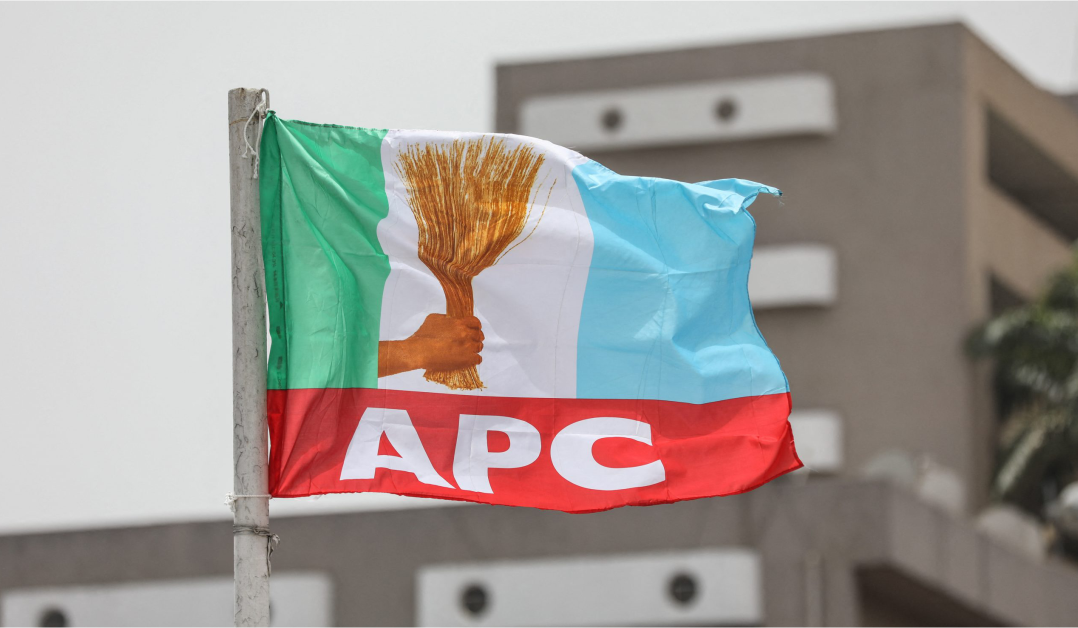
Other interested parties, however, are advocating for the seat to be moved back to the North-Central, where it was originally located prior to the 2022 modification. They contend that bringing it back to the North-Central will preserve internal party balance and guarantee historical justice.
The selection of a successor to the immediate past chairman, Umar Ganduje, will be one of the main topics of the meeting, Okechukwu said, adding that he is not a member of the APC NEC. He also underlined that the party must endorse a broad-minded candidate for the role.
He stressed that only a chairman with such qualities would “passionately and justly reconcile factions, in order to remedy all manner of despondency, which cost the party dearly in previous elections, especially in the South-East region.”
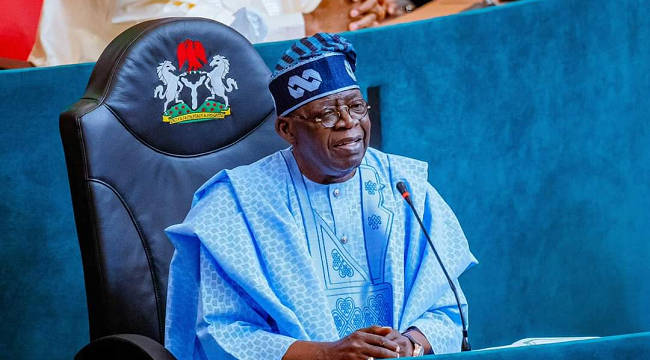
He stated: “The factions bedevilled APC’s electoral fortunes in previous elections in the South-East. Those who were aggravated either abstained from voting or voted against us.
“I am not an officer of the party, but a foundation member of the All Progressives Congress, South-East geopolitical zone, whose interest is the victory of President Bola Ahmed Tinubu in the 2027 presidential election.
“Secondly, we are also appealing for the nomination of a true progressive as chairman, who will adhere to the fine tenets of our progressive manifesto, constitution, and accordingly advise our governors and Mr President.
“Thirdly, the chairman should come from the North-Central in our zoning tradition and in the interest of justice, fairness and sense of belonging.”
Okechukwu underscored the need for reconciliation within the APC as the 2027 general elections approach. He lamented: “Is it not a paradox that those who blatantly undermined intra-party democracy, imposed party leadership at ward, local government areas and state level and scored the poorest result in the South-East for Mr President are the ones holding appointments?”

Reacting to the lack of proper recognition and reward structure in the party, Okechukwu, a former Director-General of the Voice of Nigeria, said: “These are the same people who blocked reconciliation efforts made by the former chairman Senator Adamu Abdullahi, rendered the findings null and void and consigned them to the cupboard.
“Ironically, they captured the few appointments; whereas we paid dearly as the electorate punished our great party for crass impunity and abuse of internal party democracy, which office holders committed.”
He expressed confidence that “a true progressive, just and fair-minded chairman will reconcile factions, harvest APC’s numerical strength and spread. This way, you strengthen our great party and make the victory of APC at gubernatorial and presidential elections seamless in 2027 general elections.”
Former Nasarawa State governor and former CPC chairman Senator Tanko Al-Makura, former Kogi State governor Yahaya Bello, former Plateau State governor Joshua Dariye, and Minister of Poverty Alleviation and Humanitarian Affairs Dr. Nentawe Yilwatda are among the leading candidates from the North-Central zone, according to checks by The Guardian.
Senators Salihu Mustapha (Kwara) and Sani Musa (Niger), who are both seen as technocratic and less factional, are other well-known candidates. Should the president choose to continue serving as chairman of the North-West, Senator Abu Ibrahim of Katsina, a long-time supporter of President Tinubu since their time in the National Assembly during the failed Third Republic, is also allegedly being considered.
Al-Makura’s supporters have stepped up their lobbying efforts, reminding the APC that the key northern votes that helped the APC win the 2015 general elections were delivered by the now-defunct Congress for Progressive Change, which he formerly commanded.
Fairness, they contend, requires that the CPC fraction be given the national leadership since the Action Congress of Nigeria bloc produced the president and controls the administration.
Al-Makura’s steadfast party loyalty and emphasis on unity are also emphasised by his supporters. One party strategist claimed that it would benefit both the North-Central and the CPC legacy, which has been marginalised since 2023.
The management of the ongoing wave of defections from the opposition Peoples Democratic Party (PDP), including important governors and lawmakers, is another hot spot. The growing influence of Federal Capital Territory (FCT) Minister Nyesom Wike, who is now viewed as a southern powerbroker, has caused unease within APC ranks, and long-time party loyalists fear a recurrence of the 2014 episode, when defectors hijacked party structures at the expense of founding members.
Meanwhile, stakeholders from the North-West and North-East are reportedly proposing new zoning arrangements, while Tinubu loyalists in the South insist that the party must adhere to the rotation principle to secure his reelection bid.
Deeply divided states like Bayelsa, Rivers, Benue, and Kano continue to have unsolved conflicts regarding party structure control and federal recognition. It is anticipated that NEC members would discuss how to reconcile rewarding defectors with maintaining the allegiance of seasoned party members.

Senior members, such as ministers and lawmakers, who are accused of engaging in anti-party activities during the 2023 general elections and recent off-cycle polls may be subject to disciplinary action by the NEC. It is unclear if the party will maintain selective tolerance or impose discipline.
In order to address issues with internal democracy, caretaker committees, consensus candidatures, and power concentration, the NEC is also anticipated to start internal changes, which might involve changing the APC constitution.
The publication of a schedule for APC congresses and conventions, from the ward to the national level, could be a crucial result of the meeting. This is thought to be necessary to clear up any ambiguity about leadership before the 2026 primaries.
A notable aspect is probably going to be the anticipated resignation or replacement of a few national officers, including the unsolved matter of Umar Ganduje, the previous National Chairman’s successor. Others claim the presidency is being cautious to prevent backlash from a hasty appointment, while others expect Tinubu to push for a loyalist.
The NEC meeting on Thursday will be more than just another meeting. It will put the APC’s ability to maintain its broad coalition to the test. How the party handles zoning, defections, internal reforms, and leadership rifts might decide whether it maintains its position as Nigeria’s leading political force—or starts to fall apart—as opposing blocs compete for dominance and the 2027 elections approach.
Join Our Social Media Channels:
WhatsApp: NaijaEyes
Facebook: NaijaEyes
Twitter: NaijaEyes
Instagram: NaijaEyes
TikTok: NaijaEyes





































